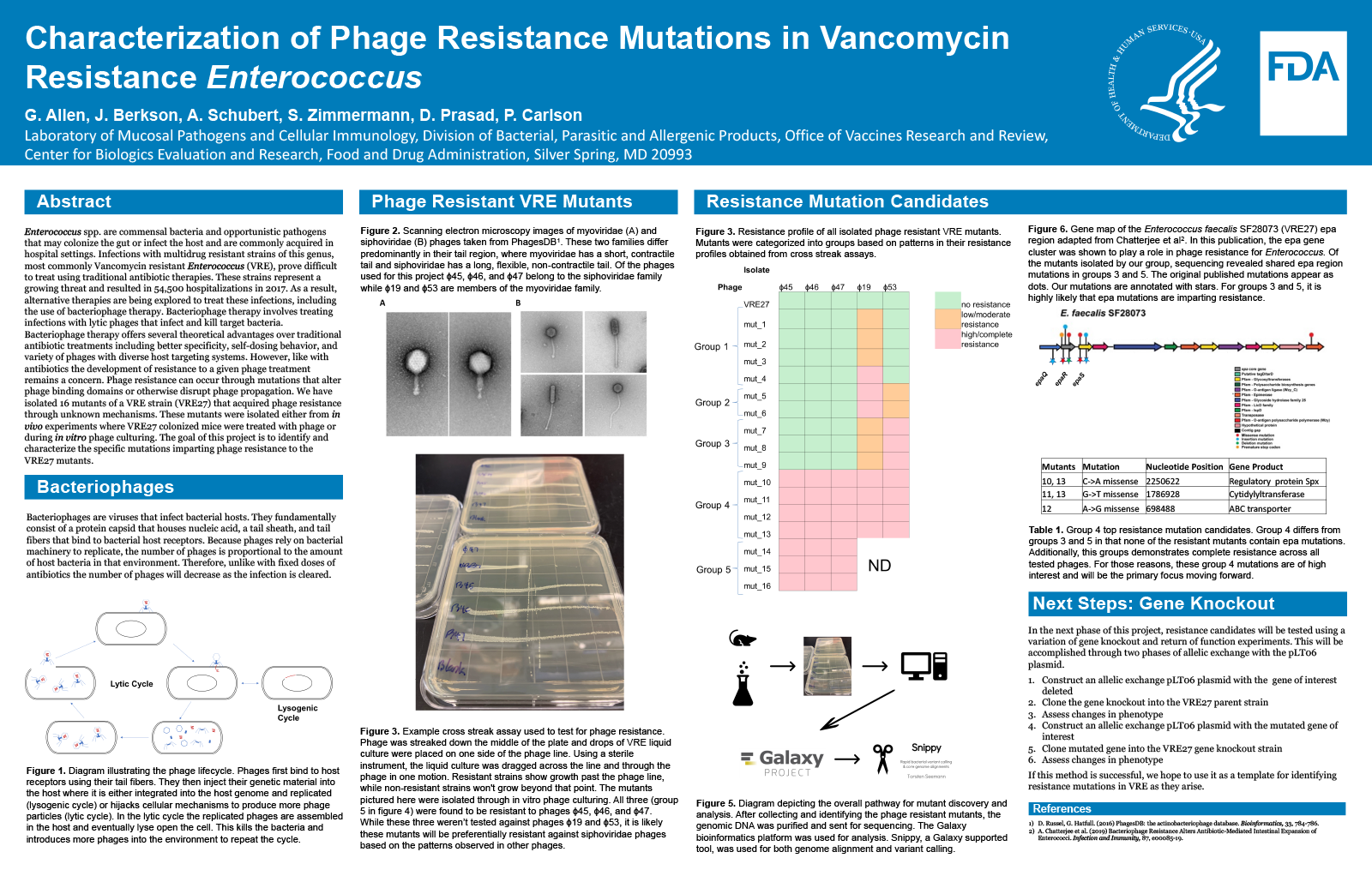2021 FDA Science Forum
Characterizing Phage Resistance Mutations in Vancomycin Resistant Enterococcus
- Authors:
- Center:
-
Contributing OfficeCenter for Biologics Evaluation and Research
Abstract
Enterococcus spp. are commensal bacteria and opportunistic pathogens that may colonize the gut or infect the host and are commonly acquired in hospital settings. Infections with multidrug resistant strains of this family, most commonly Vancomycin resistant Enterococcus (VRE), prove difficult to treat using traditional antibiotic therapies. These strains represent a growing threat and resulted in 54,500 hospitalizations in 2017. As a result, alternative therapies are being explored to treat these infections, including the use of bacteriophage therapy. Bacteriophage therapy involves treating infections with lytic phages that infect and kill target bacteria. Bacteriophage therapy offers several theoretical advantages over traditional antibiotic treatments including better specificity, self-dosing behavior, and variety of phages with diverse host targeting systems. However, like antibiotics the development of resistance to a given phage treatment remains a concern. Phage resistance can occur through mutations that alter phage binding domains or otherwise disrupt phage propagation. We have isolated 16 mutants of a VRE strain (VRE27) that acquired phage resistance through unknown mechanisms. These mutants were isolated either from in vivo experiments where VRE27 colonized mice were treated with phage or during in vitro phage culturing. The goal of this project is to identify and characterize the specific mutations imparting phage resistance to the VRE27 mutants. These strains were first organized into groups based on their activity against five phages with known activity against the VRE27 parent strain. By sequencing and comparing the genomes of the mutant strains to the parent strain, we identified single nucleotide polymorphisms (SNPs) identifying genes potentially responsible for the resistance phenotypes observed. SNPs were identified in multiple genetic pathways and mutants with similar phage resistance patterns exhibited mutations in related genes. These SNPs represent the most likely candidates for resistance mutations and will be the focus of initial characterization efforts. We will fully characterize these mutations and their role in phage resistance by generating clean isogenic mutant strains and assessing them for phage resistance. This work will help to further the understanding of phage resistance in VRE and illuminate where challenges to phage therapy may arise in the future.

